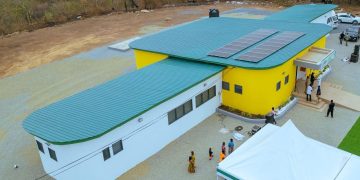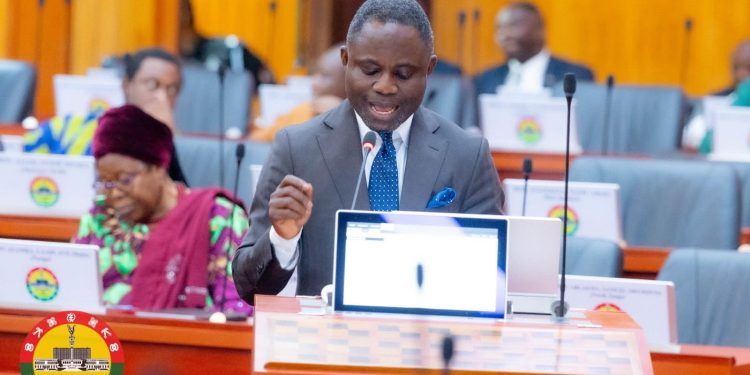Government hospitals across Ghana, particularly in the Ashanti Region, have faced mounting delays and patient backlogs amid a recent reversion to manual health record-keeping.
Health Minister Kwabena Mintah Akandoh has attributed part of these challenges to an incomplete digital infrastructure rollout under a government contract with Lightwave E-Healthcare Service.
The contract, initiated in 2019 under President Nana Addo Dankwah Akufo-Addo’s administration, was valued at $100 million and aimed to connect 950 health facilities nationwide with an electronic health management system.
Speaking in Parliament, Minister Mintah Akandoh revealed that despite the contract’s initial expiration date in 2022 later extended twice until December 31, 2024 only 450 facilities had been successfully connected by the end of the contract.
Mr. Akandoh emphasized, “Mr. Speaker, at the end of the 2024, out of the 950 facilities, only 450 had been connected. Out of the $100 million, $77 million had been paid. More than 77%.
“Meanwhile, less than 50% of the job had been done,” he stated.
The project aimed to provide an integrated system allowing health facilities to access patient data digitally, reducing delays and improving care efficiency.
However, Akandoh disclosed that contractual and operational shortcomings have hindered the expected progress.
The minister explained “As part of the contract, it was supposed to be divided into what we call milestones. And so at the end of each milestone, the infrastructure and everything must be handed over to the state.”
The minister criticized agreements that allowed third-party companies to control health data without guaranteed state access, confirming this was part of the legacy inherited by the current administration.
“Mr. Speaker, it is unquestionable for any government appointee to sign an electronic agreement that an individual will be hosting our data and the state will not have access to our data and the state will not have access to our service. Our health data. Mr. Speaker, this is what we inherited,” Mr. Akandoh stressed.
Upon taking office in 2025, the Minister noted that the Ministry of Health conducted a forensic audit to assess the status of the project.
Explaining the findings, he said, “Mr. Speaker, as part of the forensic audit, what we realized was that there were gaps in the hardware the infrastructure. For example, the agreement stated that HP laptops would be supplied. However, when you visit the facilities, a different brand has been supplied. The contract specified 20 units, but on the ground, fewer than 20 have been delivered. So, there were issues both with quality and quantity.”
“Gaps, Mr. Speaker. The gaps alone, when analysed, was over $18 million for the hardware,” Mr. Akandoh added.
Minister Akandoh dismissed claims that the government of John Dramani Mahama terminated the contract with Lightwave, which some say is the reason for the current issues.
He stated, “At the end of 2024, when we took office in 2025, the contract had already expired. Therefore, the question of the government terminating any contract does not arise, Mr. Speaker, because the contract actually expired on December 31, 2024. So, there was no issue of termination.”
If you recall in 2024, the then Vice President of the Republic, His Excellency Dr. Mahamudu Bawumia, formally commissioned the e-health system that has been rolled-out in public hospitals in Ghana.
The system, called Lightwave Health Information Management System (LHIMS) was started in 2018, through the Ministry of Health, to reduce some challenges in healthcare delivery in the country.
The e-health project therefore facilitates system harmonization, improves continuum of care, ensures better access to patient data at the point of care and enhances claims management, among others.
Speaking at the commissioning of the national project in Korle Bu, the Vice President noted that the world was in a digital era and there was the need for Ghana to catch up in order to benefit from digitalizing our operations.
Dr. Bawumia was happy with the implementation and rollout of the LHIMS system and how practitioners in various sectors across the country had embraced it, in spite of the infrastructural and logistical challenges.
He promised that he would ensure that the e-health system is rolled out in all health sectors – regional, district, local and private facilities- so that care delivery becomes more robust and seamless.
He was grateful to Lightwave eHealthcare Solutions, which is owned by a Ghanaian, for bringing up and implementing a programme to solve some challenges faced by healthcare professionals in the discharge of their duties.
Source: www.Kumasimail/Kwadwo Owusu



































































